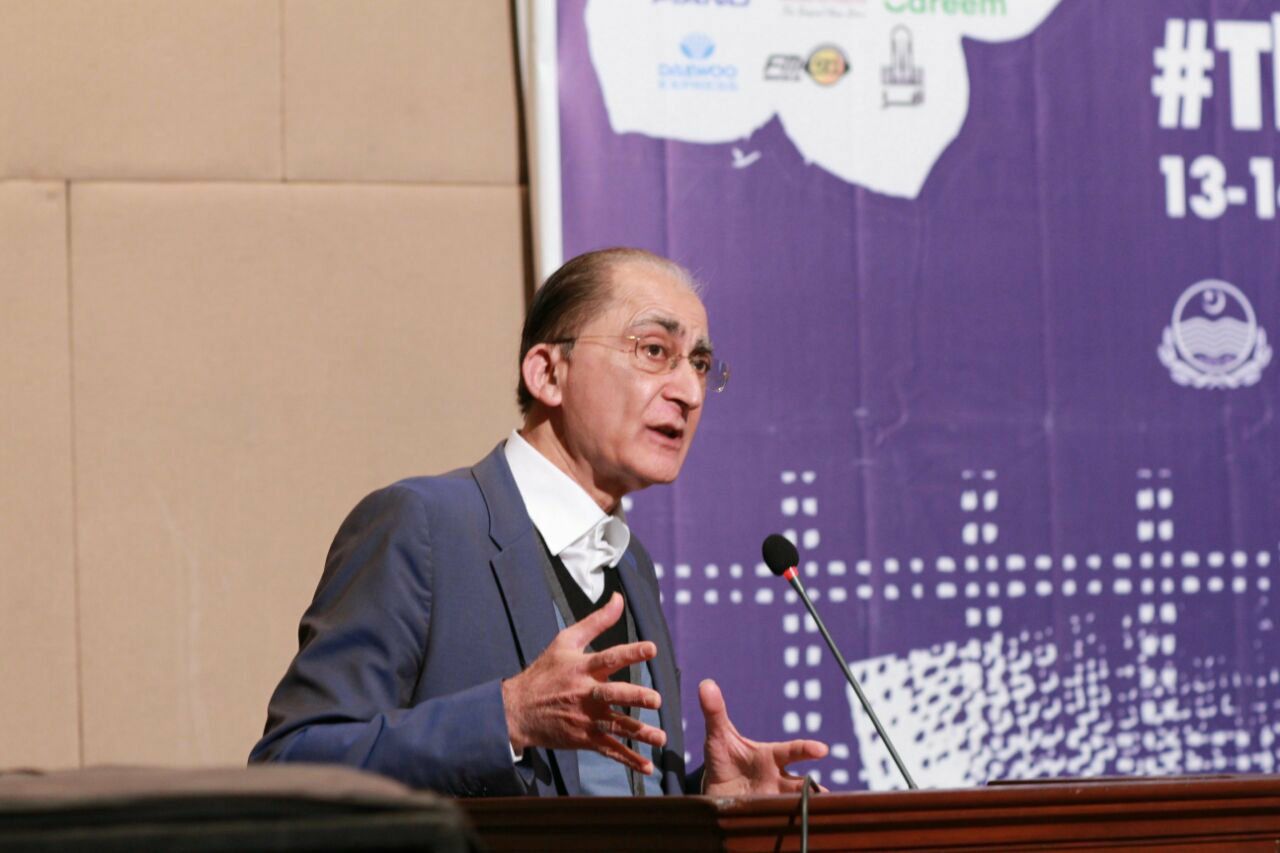Lahore: Two-day Afkar e Taza Think Fest kicks off

The first day of the Think Fest comprised of various discussions with a vibrant set of local and int
The second edition of Afkar-e-Taza academic literary festival organised by the Centre of Governance and Policy kicked off at the Alhamra Arts Council on Saturday. The festival’s aim was to bring together local and international academics, writers, poets, political and social analysts.
The first day of the Think Fest comprised of various discussions with a vibrant set of local and international panelists discussing international policies, architecture, human rights, entrepreneurship, and media in Pakistan.
The event which is being hosted in collaboration with the Punjab Higher Education Commission, Higher Education Commission and the Information and Culture Department started on Saturday morning with sessions running into the evening.
Equality and Multiculturalism
A presentation was held by Tariq Modood, a British Pakistani professor of Sociology, Politics and Public Policy from the Bristol University, who extensively spoke on his research on equality, multiculturalism, secularism and usefulness of cultural and religious affiliation outside the West. Mohammad Waseem from LUMS University was also part of the panel.
In his presentation, author of various books, Modood discussed on the ethno-religious equality, pointing on how Muslims in Britain have so far come with their ethnic as well as their religious identity. Modood discussed that with time ethno-religious identity became salient where race was not something people wished to identify themselves with; instead people started identifying themselves as Muslims or Hindus, especially people from Asian backgrounds. This renewed the idea of identity, not just from the inside but it was a factor coming from the outside as well.

Author of various books on multiculturalism Tariq Modood spoke on the urgent need to include Muslims in contemporary conceptions of democratic citizenship. Photo: Shafiq Malik
Giving an example, Modood said that people in Britain who were not of Asian background started calling people as either a “Muslim” or a “Hindu” based on the general physical appearance of the person. Modood further emphasised that rethinking is important to place where religion should be placed in the relation to equality and in the public sphere. Speaking on equality, Modood in his presentation said that in public performance the institutions should have a set of uniform rules where everyone is treated equally to meet their needs for example when it comes to adjusting to religious holidays.
Modood also explained the concepts of equality, where there is a classical liberal concept associated with non-discrimination. The US is one of the countries where he said one receives complete freedom to practise their religion and where everyone has their right to fully practise and preach their faiths. Comparing this with France, Modood said that the Republic has a concept that encourages absence of religious involvement in government affairs.
In conclusion, of his presentation, Modood said that religion especially Islam needs to be assimilated in public policies in the West ensuring that every person should be treated equally and understanding that religion is a part of the society.



